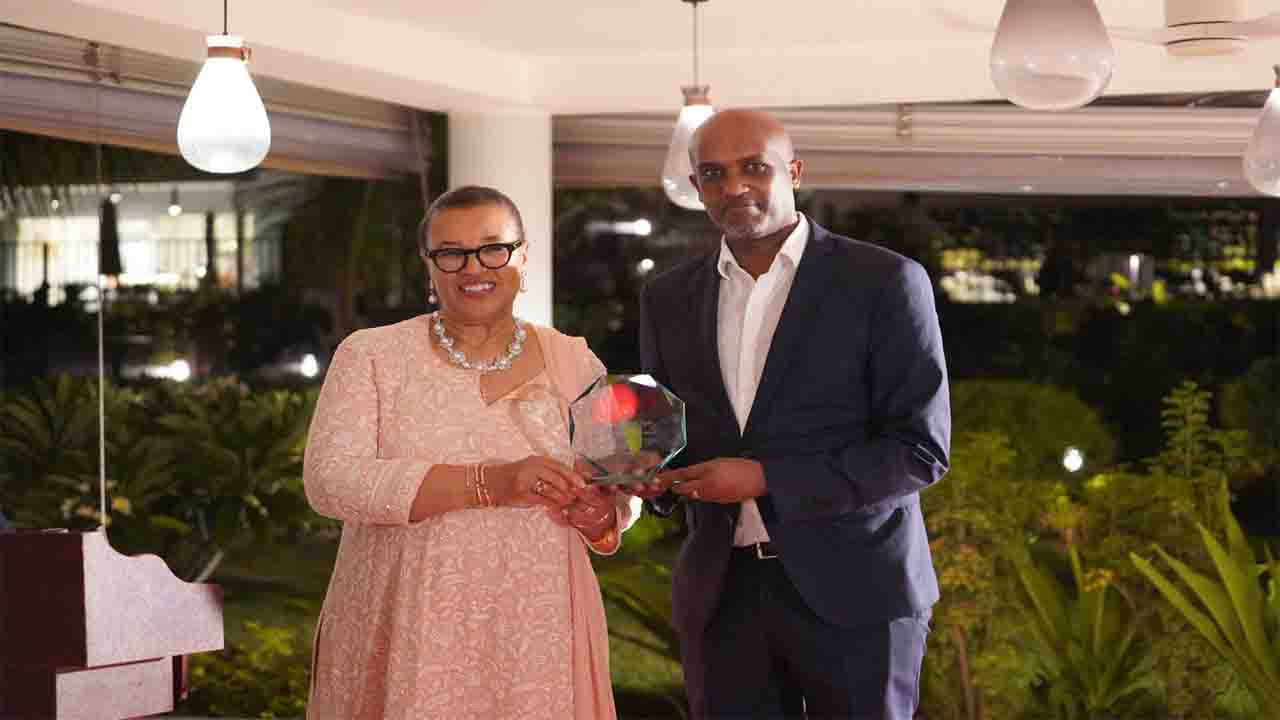With one of the world’s most business-friendly tax regimes, Singapore has emerged as a major financial and economic hub in Asia. Investors are also drawn by the efficient and cost-effective process to incorporate a company and the country’s transparent legal system.
Companies setting up in Singapore are eligible for various business and tax incentives that can help reduce their final corporate income tax rate.
However, applicants must fulfill rigorous requirements, which include committing to certain levels of investments, introducing leading-edge skills, technology, as well as contributing to the growth of research and development and innovation capabilities.
Given the diverse tax incentives made available, foreign investors should consult registered local advisors to determine which incentives will be applicable to them and their sector.
Wage Credit Scheme
The Wage Credit Scheme (WCS) is also part of the government’s Three-Year Transition Support Package. The scheme enables the government to co-fund the wage increases of Singaporean employees earning a gross monthly wage of up to S$4 thousand (US$2,945).
The program was introduced in the 2013 budget and set for three years. In the 2015 budget, the scheme was extended for another three years, and the 2018 budget extended the program further for the same period.
For 2021, the government’s co-funding ratio is set at 15 percent of the qualifying gross wage ceiling of S$5,000 (US$3,714).
Job Support Scheme
The Job Support Scheme (JSS) was first introduced in the 2020 Budget to counter the economic impact caused by the pandemic by enabling the government to co-fund monthly wages for every local worker.
With the economy slowly reopening, this incentive is now only available to a select number of business sectors. These are:
Food and beverages;
Retail;
Gyms and fitness studios;
Cinemas;
Museums, art galleries;
Performing arts and arts education centers;
Tourism sites; and
Family entertainment centers.
Businesses in these sectors can receive wages support of 30 percent of the first S$4,600 (US$3,397) of gross monthly wages until November 21, 2021.
Industry-specific tax incentives
There are four main government agencies that can administer business and tax incentives for Singaporean entities in specific domains. These are:
Singapore Economic Development Board (EDB) – which is responsible for developing and executing strategies that facilitate investment into the country’s industries;
Inland Revenue Authority of Singapore (IRAS) – the tax regulatory authority in the country;
Enterprise Singapore (ESG) – which aids Singaporean companies to expand worldwide and promotes local exports; and
Monetary Authority of Singapore (MAS) – the central bank and financial services authority.
A full list of industry-specific incentives can be found on the individual websites of these agencies. The industries eligible for tax incentives are:
Financial services;
Banks;
Fund management;
Tourism;
Shipping and maritime;
Global trading industries;
Insurance;
Processing services;
Research and development;
Headquarter activities;
Legal firms;
E-commerce; and
Event organization.
Start-Up Tax Exemption Scheme
The Start-Up Tax Exemption (SUTE) tax exemption scheme was introduced in 2005 with the aim to support new businesses and entrepreneurs in the country.
As of 2020, qualified companies can obtain a 75 percent tax exemption on the first S$100,000 (US$74,288) of chargeable income during the first consecutive three years. The next S$100,000 (US$74,288) of chargeable income can receive a 50 percent tax exemption.
This scheme is only available for the first three-yearly assessments. After this period, companies can apply for the partial tax exemption scheme (PTE).
To qualify, businesses must:
Be a tax resident in Singapore; or
Owned by no more than 20 shareholders (where all the shareholders are individuals or at least one shareholder controls 10 percent of the issued shares).
Businesses must not be:
An investment holding company; or
Engaged in the property development industry, either for investments or for sale.
Partial tax exemptions
Companies that do not qualify for SUTE may be eligible for the Partial Tax Exemption (PTE) scheme. From 2020, businesses can receive a 75 percent exemption on the first S$10,000 (US$7,430) of chargeable income. A further 50 percent exemption can then be applied on the next S$190,000 (US$141,187).
Enterprise Financing Scheme-Trade Loan
The Enterprise Financing Scheme -Trade Loan (EFS-TL) supports a company’s trade financing needs with a maximum loan quantum of S$10 million (US$7.5 million) until September 30, 2021.
The government’s risk-share of loans, however, will be lowered from 90 to 70 percent, starting from April 1, 2021, to September 30, 2021.
Enterprise Financing Scheme-Project Loan
The Enterprise Financing Scheme-Project Loan (EFS-PL) enables Singaporean companies to access financing throughout their various stages of growth. The EFS-PL has been enhanced to support domestic projects for construction companies until March 31, 2022.
The maximum loan quantum for domestic projects is S$30 million (US$22.7 million) and the government’s risk-share of loans is up to 70 percent.
The supportable loan types for overseas projects include:
The purchase, renovation, or construction of land, buildings, or factories;
Working capital loan; or
The hire or purchase of fixed assets, such as machinery or equipment.
The maximum loan quantum for overseas projects is S$50 million (US$37.8 million).
Temporary Bridging Loan Program
The Temporary Bridging Loan Program (TBLP) provides working capital for eligible businesses. Until March 31, 2021, eligible enterprises can borrow up to S$5 million (US$3.78 million). This will be lowered to S$3 million (US$2.27 million) for applications from April 1, 2021, to September 30, 2021.
The interest rate is capped at five percent, and until March 31, 2021, the government’s risk share of the loan is 90 percent. This will be lowered to 70 percent for applications from April 1, 2021, to September 30, 2021.
SME Working Capital Loan Scheme
The SME Working Capital Loan (EFS-WCL) scheme allows small and medium-sized enterprises to apply for an uncollateralized loan of up to S$300,000 (US$222,946) (from April 1, 2021), for working capital, supported by participating financial institutions. The maximum repayment period is five years.
From April 1, 2021, the risk share is set at 50 percent with ‘young companies’ (those formed within the past five years) eligible to a risk share of 70 percent.
SME fixed assets loan
This scheme assists in financing the investment of domestic and overseas assets, such as for the purchasing of equipment and machines as well as factories. The maximum loan available is S$30 million (US$22.2 million) with a repayment period of 15 years.
The risk share is set at 50 percent with young companies eligible for a risk share of 70 percent.
Venture debt loan
The venture debt loan scheme is used for high-growth startups that do not have significant assets that can be used as collateral for bank loans. Startups can utilize the funds for growing the business or diversifying their products or services. The maximum loan available is S$8 million (US$5.9 million) from April 1, 2021, and the repayment period is five years.
The risk share is set at 50 percent with young companies eligible for a risk share of 70 percent.
Merger and acquisition loan
The merger and acquisition (M&A) loan scheme aims to assist businesses to acquire local or international companies. The maximum loan available for this scheme is S$50 million (US$36 million), and the repayment period is five years.
Double tax deduction for internationalization
Singaporean companies looking to expand overseas can benefit from the Double Tax Deduction Scheme for Internationalization (DTDi), which provides a 200 percent tax deduction on expenses for international expansion.
Most DTDi deductions are subject to approval from ESG and the Singapore Tourism Board. However, certain activities do not require approval on the first S$150,000 (US$111,000) of eligible expenses.
The DTDi supports businesses in four categories and several sub-categories:
Market preparation
Product/service certification;
Feasibility studies; and
Design of packaging for the overseas market.
Market exploration
Overseas market development trips;
Local trade fairs (must be approved by the ESG and the Singapore Tourism Board);
Virtual trade fairs (must be approved by the ESG); and
Overseas trade fairs.
Market promotion
Overseas advertising;
Production of corporate brochures for overseas distribution;
Overseas business development; and
Advertising in approved trade publications.
Market presence
Overseas trade offices;
Investment feasibility studies;
Employee overseas posting;
Master licensing and franchising; and
Overseas investment trips.
The 2021 Budget has expanded the list of qualifying activities that do not require prior approval to include overseas advertising, approved product/service certification, and packaging design for overseas markets.
The qualifying expenses for overseas investment trips have also been expanded to include logistics costs to transport materials.
The 100 percent investment allowance scheme
The investment allowance incentive is administered by the EDB, from which businesses can enjoy a tax exemption of up to 100 of fixed capital expenditure incurred.
The EDB defines fixed capital expenditure as expenditure incurred for qualifying projects within a five-year period, which can be extended up to eight years.
An extension of the 100 percent Investment Allowance (IA) scheme has been granted by the government until 2023.
The approved 100 percent IA support is capped at S$10 million (US$7.4 million) and is part of the Automation Support Package (ASP), which comprises the following grants, loans, and tax support:
Grant support through the Enterprise Development Grant (EDG), capped at S$1 million for up to 50 percent of qualified automation projects;
Loan financing of up to S$15 million (US$11.1 million) for automation equipment; and
The 100 percent IA scheme.
The ASP support itself is due to end on March 31, 2021, but the 100 percent IA scheme will still be available.
This program offers tax relief that can be used to offset taxable income for approved automation projects by the EDG and ESG.
The approved projects by the EDB include, among others:
Manufacture of new products or increase production of existing products;
Promotion of the tourism industry in the country;
Research and development activities;
Energy efficiency projects;
Construction projects;
Projects that focus on reducing water consumption;
Provide specialized engineering or technical services; and
Maintenance, repair, and overhaul services for the aircraft industry.
The category for expenditures covered by the investment allowance consists of:
New productive equipment;
Building factories in Singapore; and
Acquiring patents and know-how.
Startup SG tech
The Startup SG Tech grant helps to fast-track the development of technology startups, aimed at supporting the Proof-of-Concept (POC) and Proof-of-Value (POV) for commercialization of innovative technologies.
The grant cap for POC will remain at S$250,000 (US$185,687) and POV at S$500,000 (US$371,375).
Qualifying projects must:
Clearly demonstrate how science/technology is applied;
Be of a breakthrough level of innovation;
Be commercially viable; and
Leads to or builds on proprietary know-how.
The projects must fall under one of the following criteria:
Advanced manufacturing/ robotics;
Biomedical science and healthcare;
Clean technology;
Information and communications technologies;
New industries;
Precision engineering;
Transport engineering/ engineering services; and
Food science and technology.
Enterprise development grant
The Enterprise Development Grant (EDG) helps Singapore businesses grow and innovate. The grant helps fund 70 percent of the project costs. However, from September 30, 2021, to March 31, 2022, the support level will be enhanced to 80 percent.
The grant supports projects under three pillars:
Core capabilities — projects under core capabilities help businesses strengthen their foundations, going beyond the basic functions of sales and accounting.
Innovation and productivity — under innovation and productivity, EDG supports companies looking to enhance efficiency and explore new areas of growth.
Market access — this helps Singaporean companies to venture overseas. The EDG may help defray some of the costs for this expansion.
Pioneer tax incentives
Through the pioneer tax incentive, businesses engaging in the manufacture of high-value-added products or services can apply for a pioneer certificate which entitles them to tax exemption for five and up to 15 years.
To qualify, applicants are assessed on qualitative and quantitative criteria. This includes:
Ability to introduce create employment for Singaporeans;
Introduction of new skills and expertise;
The capacity for business expenditure to create economic spin-off;
Manufacturing projects must commit to developing soft and hard infrastructure;
Introduce new technology and know-how that can advance an industry; and
Business activities must be new and have not been undertaken by other companies in the country.
Development and expansion incentive
After the pioneer tax incentive period has ended, businesses can attain the Development and Expansion Incentive (DEI). This provides companies that migrate to business activities that add more value (such as investing in projects that advance key industries like manufacturing), with a five to 10 percent tax break. The tax relief period is subject to a maximum of 40 years.
Accelerating digital transformation
Singapore will accelerate the digital transformation of local businesses through three strategies:
Scale broad-based digitalization — providing SMEs with access to relevant resources and advisory;
Develop digital leaders — building a local core of enterprises that can compete regionally and globally; and
Catalyze new products and business models — helping businesses to scale up and innovate.
Scale broad-based digitalization
Under this strategy, the government issued the (CTO)-as-a-Service scheme that enables SMEs to tap professional IT consultancies to receive end-to-end digital solutions based on their company’s profile. These consultants have expertise in areas, such as artificial intelligence, data analytics, and cybersecurity.
Further, the digital consultants will be managed by IT firms appointed by the Infocomm Media Development Authority (IMDA) and will be selected based on their relevant industry experience and reputation. The service will be available to all registered SMEs in the form of a web application.
Develop digital leaders
To develop digital leaders, the DLP seeks to identify high-potential, promising companies and equip them with the digital capabilities to transform their business.
The DLP will support companies to:
Build expertise in the firm, including the hiring of digital talent; and
Develop and implement digital transformation roadmaps.
The program will initially support 80 companies beginning with those more advanced in their use of digital technologies, providing up to 70 percent on qualifying costs. Eligible firms will participate in an initial two-year pilot.
Catalyze new products and business models
To increase the speed of digital innovation and drive more collaboration, the government has enhanced the Open Innovative Platform (OIP) initiative. The OIP was launched in 2018 to support businesses in getting resources to meet their innovative needs effectively.
The OIP has been enhanced to include two new features:
The Discovery Engine that facilitates search and matching of technology solutions through automated recommendations; and
The Digital Bench provides quick proof-of-concept (POC) testing through a virtual POC platform.
The government hopes that the OIP will lead to more co-innovations, and the fast-track development of prototypes, reducing the time for products and services to be commercialized.
Fintech solidarity grant
In May 2020, the Monetary Authority of Singapore (MAS), the Singapore Fintech Association (SFA), and investment and internet banking firm AMTD Group and AMTD Foundation, established the MAS-SFA-AMTD FinTech Solidarity Grant to support Singapore-based fintech firms amid the challenging business climate caused by the pandemic.
The grant, valued at S$6 million (US$4.2 million), is divided into two categories: the Business Sustenance Grant (BCG) and the Business Growth Grant (BGG). These programs complement the S$125 million (US$88 million) support package to strengthen the country’s fintech sector issued in April 2020. Through these latest grants, eligible companies can receive financial support to cover working capital expenditures, funding for internships, as well as business grants.
Applications can be submitted from May 18, 2020, to December 31, 2021, on the SFA website.
Business sustenance grant
The BSG aims to support fintech companies with their immediate cash flow problems to save jobs.
Eligible firms can receive a one-time grant of up to S$20,000 (US$14,100) to cover wages, rent, and daily capital expenditures.
The wage support covers up to S$2,000 (US$1,400) per month per local staff including directors for up to six months. Up to S$1,000 per month will be given for the salaries of interns for up to six months.
Additionally, up to S$4,000 (US$2,832) has been allocated to help with rental costs for up to six months.
Business growth grant
The BGG aims to foster the growth of fintech companies in the country and enable them to continue to innovate.
Eligible firms can receive up to S$40,000 (US$28,000) if they can show ‘proof of concept’ (POC) – demonstrating that their ideas are workable – on their first application to financial institutions on the API Exchange (APIX) platform.
APIX is the world’s first open-border, open-architecture application programming interface (API) platform, that serves as a marketplace for regulators, fintech entities, central banks, and financial institutions to cooperate and catalyze digital innovation and financial inclusion.
Firms can then receive S$10,000 (US$7,000) for second to fifth POC with a cap of S$80,000 (US$56,000) per firm.
Interns involved in the development and implementation of the POC can receive up to S$1,000 per month towards their salaries. This is capped at S$20,000 (US14,000) for firms with more than 30 staff and S$10,000 (US$7,000) for companies with 30 staff or less.
How can fintech companies be eligible?
To be eligible for the grants, the company must be registered and in operation in Singapore at least three months before applying for the grant.
The company must have at least two or more of its core activities in Singapore and the company should be an SFA member with a valid SFA fintech certification.
Other requirements
If a company receives the grant, there are several key performance indicators (KPI) that they will need to adhere to for at least 12 months. These are:
The company must remain registered and operating in Singapore;
The POC must be successfully completed through the APIX platform;
Must not reduce employee numbers, however, if forced to, this should not be more than 20 percent of the total workforce; and
Must be an SFA member with a valid SFA certificate throughout the period.
This article was produced with the kind assistance of Dezan Shira & Associates. The firm has 30 years’ experience on the ground in ASEAN and partners with other professional firms in the United Kingdom and across the Commonwealth. For assistance and advisory in Singapore please contact us at singapore@dezshira.com or visit www.dezshira.com
















